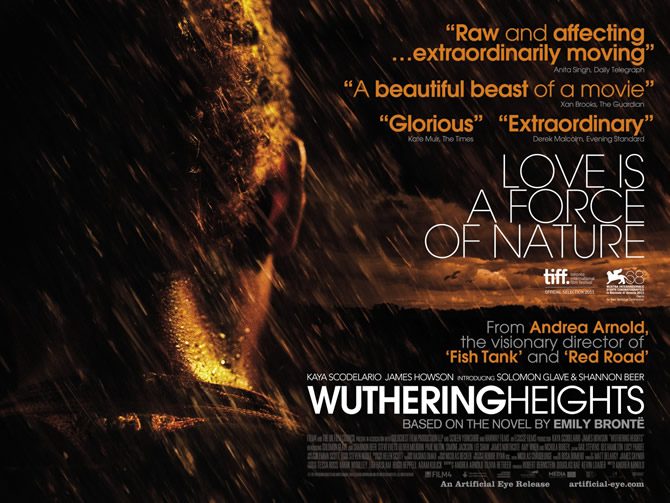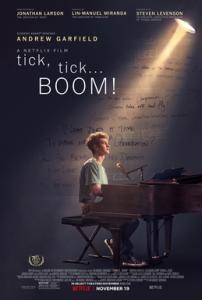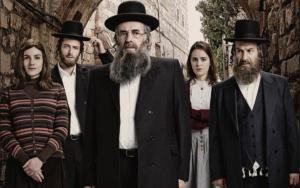Director/writer Andrea Arnold’s anti-romantic narrative is a journey to the center of human darkness that perhaps for the first time depicts what Emily Brontë was trying to say in her 1847 story, Wuthering Heights — her only novel.
Mr. Earnshaw (Paul Hilton) brings home to his bleak farm a black child he found wandering the streets of Liverpool because it is the Christian thing to do. He has the boy baptized and names him Heathcliff (Solomon Glave/James Howson). The child bolts, and we think it is because he does not understand. He finds a friend in Cathy (Shannon Beer/Kaya Scodelario), the daughter of the house, and they roam the moors together. When Earnshaw dies, his son, Hindley (Lee Shaw), takes over the farm and the cruelty begins. One day, Cathy is hurt on the moor, and the wealthy family at Thrushcross Grange takes her in for five weeks to recover. Cathy loves Heathcliff but agrees to marry Edgar Linton (James Northcote) because of what he can offer her. Heathcliff flees and returns a wealthy man a few years later. He spends time with Cathy and upsets everything. He marries Isabella (Nichola Burley), Edgar’s sister. At first she is smitten, but then realizes it is a cruel ruse to torment Cathy, who is dying.
This new film spends the first hour, maybe more, on Heathcliff and Cathy’s childhood. It is no superficial romance and there is no happy ending, unlike the supernatural one imagined for the 1939 William Wyler version starring Orson Welles and Merle Oberon. While this new rendering of the story might still find a place in the “gothic romance” genre, there is no doubt that “psychological” is the main descriptor.
To continue reading click here













